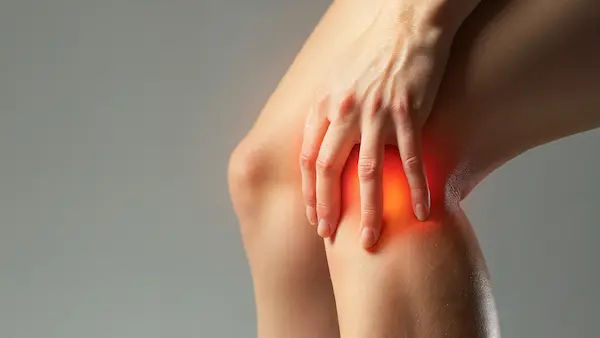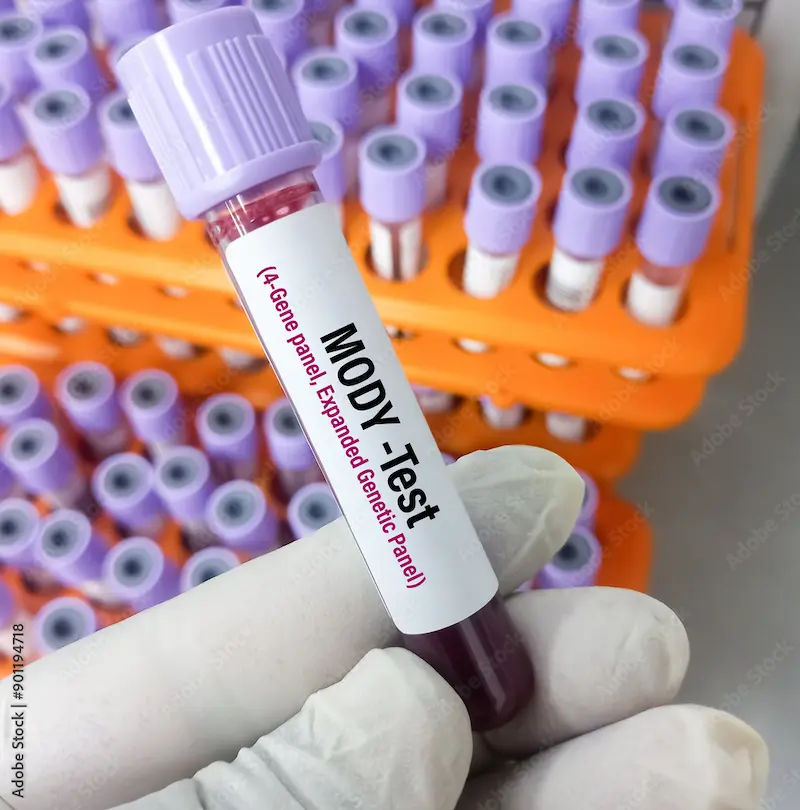Tulsi (Holy Basil): Uses, Benefits And Safe Dosage
Discover tulsi benefits and how to use this ayurvedic herb safely. Evidence-based uses, dosage, side effects, and tips for choosing quality supplements.


Introduction
Tulsi (also called Holy Basil, Ocimum tenuiflorum or Ocimum sanctum) is a revered Ayurvedic herb with deep traditional roots. Many people turn to tulsi tea or supplements for stress, immunity, and balance. This guide helps you understand tulsi benefits, what science supports, how to use it safely, potential risks, and the dosage ranges used in studies.
What is Tulsi (Holy Basil)?
- Tulsi’s origins, forms and traditional role in Ayurveda.
- Botanical name: Ocimum tenuiflorum (O. sanctum)
- Family: Lamiaceae (mint family), related to culinary basil but a different species
- Traditional use: An essential Ayurvedic herb believed to support calmness, resilience, respiratory comfort, and vitality
- Forms: Fresh leaves, dried tea, capsule or tablet extracts, liquid extracts for internal use; essential oil only for topical or aromatic use
Consult Top Specialists
Tulsi Benefits: What the Science Says?
Let’s see what current research shows about tulsi and where evidence is still limited:
Stress, Mood, and Mental Wellbeing
Tulsi’s possible effects on mood and stress is:
- Small clinical studies suggest tulsi may reduce perceived stress and support mood.
- Possible mechanism: Antioxidant and anti-inflammatory actions seen in lab studies.
- Bottom line: Promising, but larger human studies are needed.
Blood Sugar Support
Tulsi’s role in glucose regulation is:
- Some small trials in type 2 diabetes show modest improvements in blood sugar.
- Do not change or stop diabetes medicines; tulsi combined with medication may cause low blood sugar.
Heart and Metabolic Health
Here’s how tulsi may support metabolic markers:
- Early evidence suggests small improvements in cholesterol and triglycerides.
- Helpful as a supportive habit, not a replacement for heart-healthy routines.
Immunity and Infections
Tulsi’s potential antimicrobial effects include:
- Lab studies show antimicrobial activity; human data remain limited.
- Tulsi tea may be soothing but does not replace medical treatment or proven therapies.
- Tulsi does not prevent or treat COVID-19.
Oral Health
- Tulsi-based mouth rinses may help reduce plaque and gum inflammation.
- Use as directed; do not swallow oral rinses.
Antioxidant and Anti-inflammatory Activity
- Strong evidence in lab and animal models; human evidence is still developing.
How People Use This Ayurvedic Herb?
Let’s see the different forms of tulsi and how they’re used:
Common forms:
- Tea from dried leaves
- Capsules or tablets containing extracts or powdered leaf
- Liquid extracts or tinctures
- Fresh leaves used in recipes
- Essential oil for topical or aromatic use only
Tips for choosing quality products:
- Look for botanical name Ocimum tenuiflorum or O. sanctum
- Prefer third-party tested brands (USP, NSF, ConsumerLab)
- Choose extracts with clear standardisation
- Avoid proprietary blends without ingredient amounts
Safe Dosage: What Studies Have Used
- Safe and commonly used dosage ranges from research.
- Tulsi tea: 1 teaspoon (2–3 g) dried leaves steeped 5–10 minutes; 1–3 cups daily
- Tulsi extracts: 300–600 mg per day of standardised extract
- Tinctures: Follow product label as concentrations vary
Safe dosing tips:
- Start low and increase slowly
- Follow the product label unless advised otherwise
- Speak with your clinician if you take prescription medicines or have medical conditions
Who Should Be Cautious or Avoid Tulsi?
- Here is what this section explains: Groups that require caution with tulsi supplements.
- Pregnancy or breastfeeding: Avoid supplements due to limited safety data
- Trying to conceive: Possible fertility effects in animal studies
- Diabetes or hypoglycaemia: Tulsi may lower blood sugar
- People on blood thinners: Possible effects on clotting
- Thyroid conditions: Some animal data show hormonal changes
- Scheduled surgery: Stop supplements 2 weeks prior
- Children: Stick to food amounts only
- Allergies to Lamiaceae family plants: Use caution
Possible Side Effects
Here is what this section explains: Known side effects and how to minimise risk.
- Mild nausea, stomach discomfort, or loose stools
- Occasional headaches
- Skin irritation with undiluted essential oil
Safety tips:
- Do not ingest tulsi essential oil
- Dilute essential oil for topical use and patch-test
- Choose reputable, tested brands
How to Add Tulsi to Your Routine?
- Here is what this section explains: Practical ways to incorporate tulsi safely.
- For stress support: 1–2 cups of tea daily
- For metabolic support: Use only after clinician approval
- For oral health: Ask your dentist about tulsi-based rinses
- For flavour: Add fresh leaves to herbal blends or warm dishes
Quality and Label-Reading Checklist
Here is what this section explains:
- Botanical name listed clearly
- Leaf used (most common in studies)
- Standardisation details
- Third-party testing mentioned
- Clear dose per serving
- Avoid unnecessary additives or undisclosed blends
How Tulsi Fits Into a Healthy Lifestyle?
Tulsi is a supportive herb - but not a cure-all. Pairing it with balanced meals, movement, good sleep, and appropriate medical care will give you better results than relying on supplements alone.
Conclusion
Tulsi is a cherished Ayurvedic herb with promising but still developing scientific evidence. When used mindfully - in tea or supplement form - it may support stress balance, mild metabolic health, and overall wellbeing. However, it should complement, not replace, medical care. Choose high-quality products, use appropriate doses, and be mindful of conditions or medications that require caution. With the right approach, tulsi can be a meaningful part of a balanced, health-supportive lifestyle.
Consult Top Specialists
Consult Top Specialists

Ms. Samapti Maity
Dietician
16 Years • MSc. (Clinical Nutrition & Dietitics), NDEP, Course in Maternal Infant Young Child Nutrition.Diploma in Sports Nutrition, Diploma in Diabetic educator, FODMAP Specialist
Kolkata
BIENETRE CLINIC, Kolkata

Ms. Malabika Datta
Dietician
17 Years • Msc. in Dietetics & Food Service Management
Kolkata
Dr Utsa Basu Clinic, Kolkata
(25+ Patients)

Ms. Soma Saha
clinical nutrition
17 Years • B.Sc. - Home Science (Food & Nutrition), M.Sc. - Home Science (Food & Nutrition)
Kolkata
Dr Utsa Basu Clinic, Kolkata
(50+ Patients)

Ms Suchanda Guha
Dietician
10 Years • M.Sc (Applied Nutrition), B.Sc (Food & Nutrition), Diploma (Yogic Nutrition)
Kolkata
NutriKutir, Kolkata

Ms Divya Gandhi
Dietician
10 Years • Diploma in Nutrition and Dietetics
Delhi
Diet and Cure, Delhi
(325+ Patients)
Consult Top Specialists

Ms. Samapti Maity
Dietician
16 Years • MSc. (Clinical Nutrition & Dietitics), NDEP, Course in Maternal Infant Young Child Nutrition.Diploma in Sports Nutrition, Diploma in Diabetic educator, FODMAP Specialist
Kolkata
BIENETRE CLINIC, Kolkata

Ms. Malabika Datta
Dietician
17 Years • Msc. in Dietetics & Food Service Management
Kolkata
Dr Utsa Basu Clinic, Kolkata
(25+ Patients)

Ms. Soma Saha
clinical nutrition
17 Years • B.Sc. - Home Science (Food & Nutrition), M.Sc. - Home Science (Food & Nutrition)
Kolkata
Dr Utsa Basu Clinic, Kolkata
(50+ Patients)

Ms Suchanda Guha
Dietician
10 Years • M.Sc (Applied Nutrition), B.Sc (Food & Nutrition), Diploma (Yogic Nutrition)
Kolkata
NutriKutir, Kolkata

Ms Divya Gandhi
Dietician
10 Years • Diploma in Nutrition and Dietetics
Delhi
Diet and Cure, Delhi
(325+ Patients)
More articles from General Medical Consultation
Frequently Asked Questions
Is tulsi the same as common basil?
No. Culinary basil is usually Ocimum basilicum. Tulsi (holy basil) is Ocimum tenuiflorum (O. sanctum). They’re related but have different traditional uses and chemistry.
Can tulsi prevent or cure COVID‑19 or the flu?
No. There’s no good evidence that tulsi prevents or cures viral infections like COVID‑19 or influenza. Use tulsi as a supportive tea if you enjoy it, but rely on proven preventive measures and medical care as advised by public health authorities.
Is it safe to take tulsi every day?
In food and tea amounts, tulsi is generally considered safe for most adults. For daily supplements, long‑term safety data are limited. If you plan to take tulsi capsules or extracts regularly, check with your healthcare provider - especially if you take medications or have chronic conditions.
Can I take tulsi with my diabetes or blood pressure medication?
Maybe - but only with medical guidance. Tulsi may lower blood sugar and could interact with diabetes drugs. If you take anticoagulants, antiplatelets, or have a bleeding disorder, be cautious. Always discuss tulsi with your clinician before combining it with prescriptions.
Does tulsi help with weight loss?
There’s no strong evidence that tulsi leads to meaningful weight loss on its own. It may support stress management and metabolic health modestly, but weight management works best with nutrition, activity, sleep, and behaviour changes.




